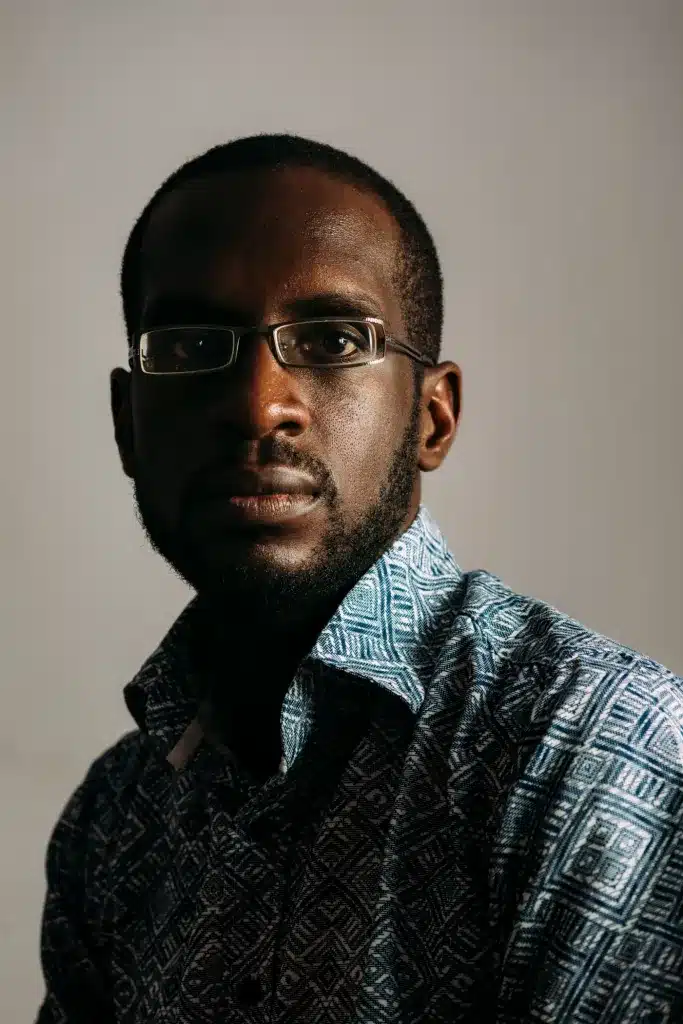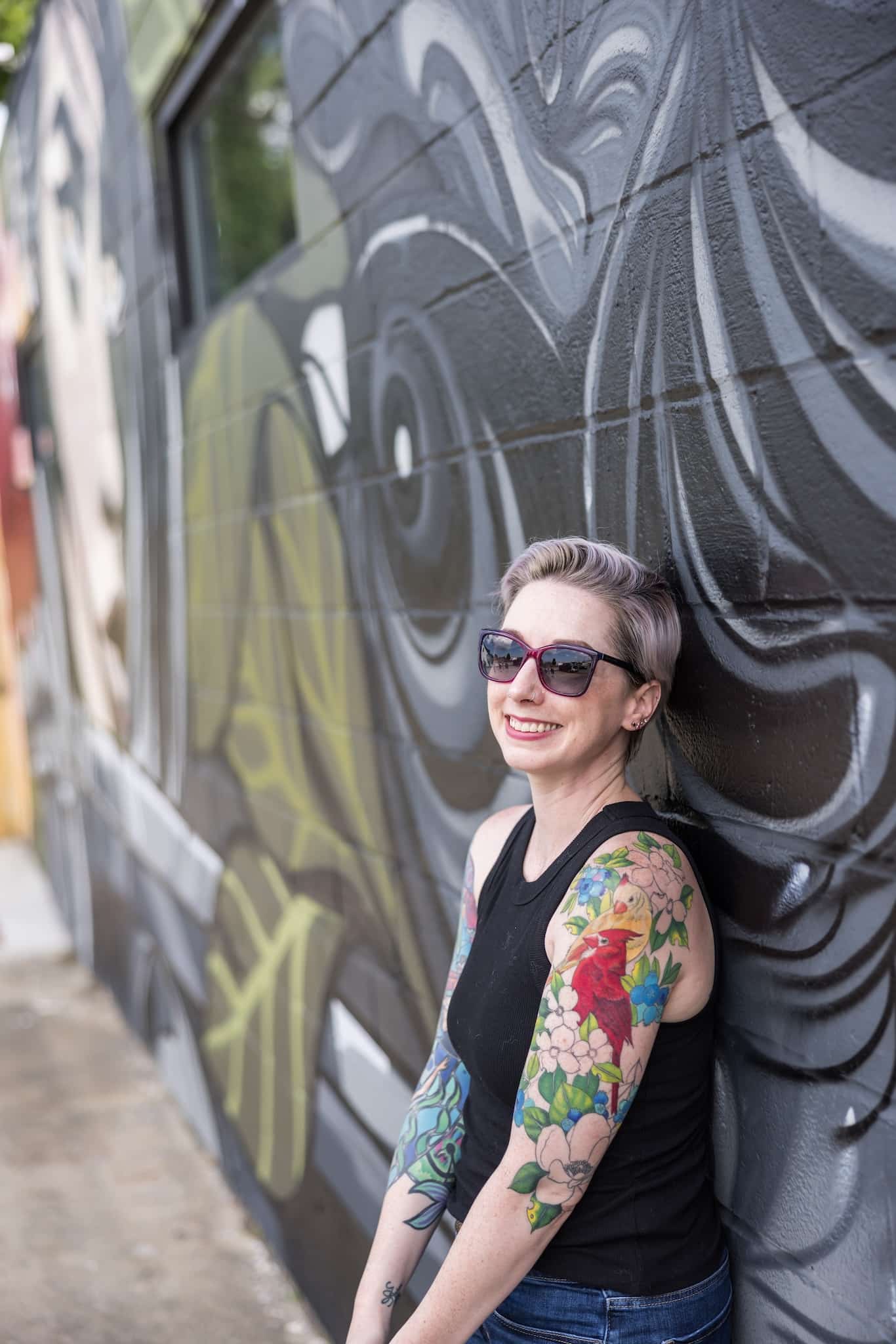
Introduction
I recently had the privilege of speaking with Umar Turaki—filmmaker, producer, and author of the upcoming novel Every Drop of Blood is Red, releasing on November 12th. This is not his first foray into fiction—his debut novel, Such a Beautiful Thing to Behold, garnered critical praise for its rich storytelling. But Umar’s creative journey spans far beyond literature. He’s also a filmmaker whose dedication to telling authentic, homegrown stories from his Nigerian heritage has shaped his career.
During our conversation, Umar was candid, funny, and passionate about the craft of storytelling. Parenthood, filmmaking, and writing have all left a profound impact on his life, and his reflections offer valuable lessons for any aspiring creative. As a fellow author and parent, I was particularly moved by the way his story resonated with my own, and I found myself captivated by the rich tapestry of his homeland that unfolds in Every Drop of Blood is Red.
Bring your vision to life.
Explore how celtx can help you take your ideas from page to screen.
Q: You’ve navigated both the world of literature and filmmaking. Can you tell me about your journey and how you ended up where you are today?
Umar Turaki: I think I’ve always known I wanted to be a storyteller. Even as a kid, there was this creative impulse in me that I couldn’t ignore. Writing came first, and when I was 16, I wrote and self-published my first novel. It was terrible (laughs), but it was a great learning experience. I was literally selling it out of the trunk of a car, like an indie artist hustling with mixtapes. That gave me the confidence to say, “Okay, I can do this,” even though, looking back, it wasn’t my best work.
Eventually, I shifted focus to filmmaking during my undergrad years. I studied in five different countries, and filmmaking was part of my program. The visual aspect of storytelling fascinated me—how you can bring a script to life and give it texture on the screen. But at the core of it, whether it’s writing or film, I’ve always been driven by the power of stories to connect us.
After graduating, I had the chance to stay in the U.S., but I knew I needed to return to Nigeria. I had this burning desire to tell stories about my home, my community. It was a scary decision because there’s more opportunity in the U.S., but I followed my gut. I’ve never regretted that choice.
Q: That’s a huge leap. Did you ever have moments where you second-guessed yourself?
Oh, all the time! (laughs) The fear was real. I kept asking myself, “Am I crazy for doing this?” But I knew deep down that staying in the U.S. wouldn’t fulfill me the way returning home to tell those stories would. I remember one of my best friends gave me the Robert Frost poem about taking the road less traveled, and that was my guiding light. Sometimes, you have to trust the harder path even if it terrifies you.
Q: When you got back to Nigeria, you made a short film in your mother’s village, which sounds like a labor of love. Can you tell me about that experience?
That project was wild (laughs). I was heavily inspired by Italian neorealism at the time, and I wanted to capture the raw, unpolished beauty of my mother’s village. So, I hired non-actors, shot the film in the local language, and worked with a shoestring budget. And, honestly, everything that could go wrong, did go wrong.
We had next to no resources, and I remember thinking, “This is either going to be a total disaster, or it’ll be the making of me.” In the end, the film didn’t turn out perfectly, but it was such an important learning experience. It was a baptism by fire, and I came out the other side knowing that no matter how hard the journey, storytelling was what I wanted to dedicate my life to.
Q: As a filmmaker and writer, how do you balance those two worlds? Do they feed into each other?
There was a time when I felt like the two were at odds with each other. I used to think, “If I’m writing a novel, it means I’m not making progress as a filmmaker,” and vice versa. But over the years, I’ve learned that these are just two sides of my creative self, and they can coexist. In fact, they inform each other in unexpected ways. I’m currently working on adapting my first novel, Such a Beautiful Thing to Behold, for TV, and it’s been amazing to see how the story evolves when translated to a new medium. It’s like the story gets to have two lives.
With Every Drop of Blood is Red, it was originally an idea for a TV series, but I decided to write it as a novel first. Now, I’m hoping to adapt it for the screen as well. The challenge is that a book and a film operate on different rules. You can’t just transfer everything from the page directly onto the screen—it’s like trying to fit a square peg in a round hole. But that’s also the beauty of adaptation: you get to see the story take on a new form.
From script to screen:
Start using celtx today
Discover how celtx can help you manage every step of your creative journey.
Q: It sounds like storytelling is your way of processing the world around you. Has parenthood changed your perspective on storytelling?
Oh, absolutely. Becoming a father has shifted everything for me. It’s funny because I thought parenthood would slow me down creatively, but in many ways, it’s deepened my work. My kids have made me more patient, more reflective. They’ve helped me see the world through fresh eyes, and that’s changed the kind of stories I want to tell.
I have ideas for future projects that are directly inspired by my experiences as a parent. It’s not just about writing stories for them, but writing stories that reflect the lessons I’ve learned about life through them. It’s humbling, really.
Q: You’ve mentioned persistence as key to success in the creative industry. What advice would you give to aspiring filmmakers and writers?
The best advice I can give is: just keep going. There will be a lot of rejection and doubt, but you have to keep pushing. People often ask me, “How do I write a book?” or “How do I make a film?” and my answer is always, “Get started.” Just get that messy first draft done. It’s not going to be perfect—it’s not supposed to be. The “vomit draft” is real (laughs). But once you have something down, you can shape it. You can’t edit a blank page.
People often ask me, “How do I write a book?” or “How do I make a film?” and my answer is always, “Get started.”
Another thing is to find your tribe. The creative journey can feel isolating, especially when you’re struggling. Surround yourself with people who believe in your vision and who will lift you up when things get tough.
Q: Your upcoming novel, Every Drop of Blood is Red, is set in Jos, Nigeria. What do you hope readers take away from it?
This book is deeply personal to me. Jos is my hometown, and over the last two decades, it’s been through so much conflict. The story explores the tensions and divisions that have fractured the city—whether religious or ethnic—but at its heart, it’s about how we are more connected than we realize.
I hope readers walk away with a sense of our shared humanity. I know it sounds cliché, but I believe there’s more that binds us together than divides us. Through the characters in the novel, I wanted to explore how people navigate those divisions, and how they find their way back to each other.
Related reading: From Tunes to TV: An Interview with Comedy Writer Trevor Risk || Celtx Blog
Q: You’re adapting Such a Beautiful Thing to Behold for television. How is that process going?
It’s challenging but exciting. Adaptation is tricky because you have to let the story evolve while still keeping its core intact. A novel is very internal—you get to live inside the characters’ minds. But on screen, you have to show those emotions in a different way. The process has been a learning curve, but I’m really enjoying seeing the story take on new life.
Q: So where do you see yourself in the next five years?
Hopefully, making my first feature film as a writer-director. That’s been a dream of mine for so long. I also want to continue writing and adapting my work for the screen. Ideally, I’d love to be a full-time storyteller—whether in film, TV, or literature—and be able to support my family through my art. But most of all, I just want to keep telling stories that matter to me.
Q: What’s your favorite movie of all time?
That’s easy—Magnolia by Paul Thomas Anderson. It’s this incredible mosaic of characters, all connected in ways that are both subtle and profound. There’s this one scene where all the characters start singing, and it’s such a surreal, beautiful moment. I’ve watched it more times than I can count, and it never loses its magic.
Conclusion
Speaking with Umar Turaki was not only insightful, but a reminder of the resilience and passion that goes into every creative endeavor. As a fellow author, his journey resonated deeply with me, and I’ve truly enjoyed diving into Every Drop of Blood is Red. The way he weaves his homeland into the fabric of his stories, painting a rich and textured landscape, is nothing short of remarkable.
Umar’s experiences in both film and literature offer a blueprint for aspiring storytellers, particularly those navigating the complexities of finding their voice. His upcoming novel is sure to captivate readers, and his plans to bring it to the screen promise to make an even bigger impact. Don’t miss Every Drop of Blood is Red when it releases on November 12th—it’s a powerful, moving story that will leave a lasting impression.
For more about Umar and to order a copy of Every Drop of Blood is Red, visit his website here.
Get Inspired and Get Started. Ready to follow in the footsteps of filmmakers and authors? See how Celtx can guide your journey!
Keep the conversation going. Follow us on our socials for more tips, tricks, and filmmaking insights.
More interviews, more insights:
- Celtx User Spotlight: Ashlie Gibbs
- Celtx User Spotlight: Latasha Mercer
- How to Become a Producer in Film and TV

